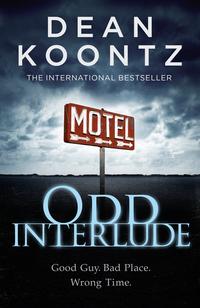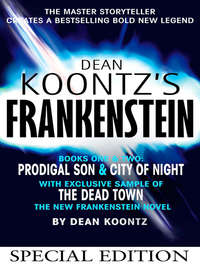
Полная версия
Relentless
“Sometimes you’re so naïve, I want to pinch your cute pink cheeks,” Olivia said. “Dear, I’m sure he skimmed parts of it, and perhaps an assistant read the whole thing.”
“But that’s…that’s…dishonest.”
“You’ve had an easy ascent, Cubby, your first book a major bestseller. You don’t realize that the literary community has a few charming little islands, but they’re floating in a huge cesspool.”
My insteps were as ugly as my toes. Swinging my feet off the desk, hiding them under my chair, I said, “His syntax isn’t good.”
Olivia said, “Yes, I often take a red pencil to his reviews.”
“Have you ever sent one to him—corrected?”
“I am not insane, dear.”
“I meant anonymously.”
“I like my face as it’s currently arranged.”
“How can he be considered the premier critic in the country?”
“He’s respected in the literary community.”
“Why?”
“Because he’s vicious, dear. People fear him.”
“Fear isn’t respect.”
“In our community, it’s close enough.”
“Olivia, what should I do?”
“Do? Do nothing. You’ve always received ninety percent good reviews, and you will this time. The book is strong. It will sell.”
“But this rankles. The injustice.”
“Injustice is hyperbole, Cubby. It’s not as if you’ve been packed off to a gulag.”
“Well, it’s frustrating.”
After a silence, she said, “You aren’t thinking of responding to him, are you? That would be a terrible mistake, Cubby.”
“I know.”
“You would only look like a defensive whiner.”
“It’s just that he made so many mistakes. And his syntax is so bad. I could really eviscerate him.”
“Dear, the man can’t be eviscerated because he has no viscera. He’s a walking colon. If you cut him open, you only end up covered in crap.”
By the time I returned to the kitchen, Milo and Lassie were no longer there, and Penny had finished eating. She stood at the sink, rinsing her plate before putting it in the dishwasher.
Now that they were cold and glistening with milky liquid butter, my pancakes looked as unappetizing as the deflated air bladders of a flying furnal. No longer hungry, I decided to skip breakfast.
Turning from the sink, drying her hands on a towel, Penny said, “So you read the review?”
“But he didn’t read my book. Maybe he skimmed it. He’s got so much wrong.”
“What did Olivia think?”
“She says he’s a walking colon.”
“You shouldn’t have let him into your head, Cubby. But now that he’s in there, flush him out.”
“I will.”
She put her arms around me. “You’re a sweet, talented man, and I love you.”
Holding her tight, I said, “Don’t look at my feet.”
“What’s wrong with your feet?”
“Everything. I should never go barefoot. Let’s have dinner at Roxie’s, celebrate publication day.”
“That’s my boy. You went off the track for a bit, but now you’re on it again.”
“Maybe I am.”
“Let it go. Remember what Gilbert said.”
She was an admirer of the late G. K. Chesterton, the English writer, and she made me an admirer of his, as well.
“‘Nothing,’” she quoted, “‘can do a man harm unless he fears it.’ There’s no reason to fear a weasel like Shearman Waxx.”
“If I had shaved, brushed my teeth, and didn’t have sour-coffee breath, I’d kiss you so hard.”
Pinching my lower lip between her thumb and forefinger, and pulling it into a pout, she said, “I’ll be around when you’ve cleaned up your act.”
In the first-floor hallway, heading toward the stairs, I passed the open door of my study and saw Milo and Lassie sitting side by side in my office chair, boosted by a sofa pillow. This was a Norman Rockwell moment for the twenty-first century: a boy and his dog surfing the Internet.
Stepping behind the chair, I saw on the monitor an aerial view of a seaside house with an orange barrel-tile roof.
“What’s that?” I asked.
Milo said, “Google Earth. I googled the guy, where he lives.”
“What guy?”
“The Waxx guy.”
When I was six years old, my technological prowess amounted to helping my buddy Ned Lufferman build a tin-can rocket powered by firecrackers that he stole from his big brother’s Fourth of July stash. Ned lost the little finger on his left hand, and I was rushed to the hospital with a second-degree burn on the nose. There was also some concern that my eyebrows would not grow back, but they did.
Milo clicked the mouse, and a street view of the Waxx property replaced the aerial shot.
With cream-colored walls and terra-cotta window surrounds, the Spanish Mediterranean residence was both handsome and romantic. Twin forty-foot magnolias canopied the front yard, and red bougainvillea all but concealed the flanking property walls.
“I thought he was in New York,” I said.
“No,” said Milo. “Laguna Beach.”
Barring heavy traffic, Laguna lay only twenty minutes away.
In this e-mail age, Waxx could live as far from his publisher as I lived from mine, yet meet his weekly deadlines. His presence in the vicinity was a surprise, though surely nothing but a coincidence.
Nevertheless, I was pricked by either intuition or imagination, and through me bled a cold premonition that the critic’s proximity to me might be more significant than it seemed.
“Did you read the review?” I asked Milo.
“No. Mom told you—let it go. She’s smart about this stuff.”
“What stuff?”
“Most stuff.”
“So if you didn’t read the review, why did you google him?”
“It was Lassie’s idea.”
The dog turned her head to look back and up at me.
“Shearman Waxx is an enema,” Milo informed me.
As I gently rubbed my thumbs behind Lassie’s ears, I said, “While that may be true, it’s not a nice thing to say.”
“Wasn’t me who said it.”
Milo’s small hands moved cat-quick from mouse to keyboard to mouse. He bailed from the current website and went to an online encyclopedia, to the biographical entry on Shearman Waxx.
Leaning over my son, I read aloud the first sentence on the screen: “‘Shearman Thorndike Waxx, award-winning critic and author of three enormously successful college textbooks on creative writing, is something of an enema.’”
Milo said, “See?”
“It’s an error,” I explained. “They meant to write enigma”
“Enigma? I know what that is.”
“A mystery, something obscure and puzzling.”
“Yeah. Like Grandma Clotilda.”
I continued reading: “‘Waxx declines honorary doctorates and other awards requiring his attendance at any pubic event.’”
“What’s a pubic event?” Milo asked.
“The word should be public.” Scanning the screen, I said, “According to this, there’s only one known photograph of Waxx.”
“He’s really, really old,” said Milo.
“He is? How old?”
“He was born in 1868.”
“They probably mean 1968.”
“Do real-book ’cyclopedias make so many mistakes?”
“No.”
“Could we buy a real-book ’cyclopedia?”
“Absolutely.”
“So when will we get Waxx?” Milo asked.
“What do you mean—get him?”
“Vengeance,” Milo said, and Lassie growled softly. “When will we make him sorry he messed with you, Dad?”
Dismayed that Milo could read my anger so clearly and that it inspired him to talk of vengeance, I moved from behind his chair to his side, and with the mouse I clicked out of the encyclopedia.
“Revenge isn’t a good thing, Milo.” I switched off the computer. “Besides, Mr. Waxx was only doing what he’s paid to do.”
“What is he paid to do?”
“Read a book and tell his audience whether he liked it or not.”
“Can’t his audience read?”
“Yes, but they’re busy, and they have so many books to choose from, so they trust his judgment.”
“Why do they trust his judgment?”
“I have no idea.”
The phone on my desk rang. The third line.
When I answered, Hud Jacklight, my literary agent, said, “The Waxx review. Great thing. You’ve arrived, Cubster.”
“What do you mean—I’ve arrived? Hud, he gutted me.”
Milo rolled his eyes and whispered to Lassie, “It’s the Honker.”
Because he doesn’t understand children, Hud thinks they love it when he pinches their noses—their ears, their chins—while making a loud honking noise.
“Doesn’t matter,” Hud assured me. “It’s a Waxx review. You’ve arrived. He takes you seriously. That’s big.”
Breaking her characteristic silence, Lassie issued a low growl while staring at the phone in my hand.
“Hud,” I said, “apparently he didn’t even read the book.”
“Irrelevant. It’s coverage. Coverage sells. You’re a Waxx author now. That matters. A Waxx author. That’s huge.”
Although Hud pretends to read each of my novels, I know that he has never read any of them. He praises them without mentioning a plot point or a character.
Sometimes he selects a manuscript page at random and raves about the writing in a sentence or a paragraph. He reads it aloud over the telephone, as if my prose will sound fresh and limpid and magical to me by virtue of being delivered in his insistent cadences, but his voice is less that of a Shakespearean actor than that of a livestock auctioneer. By emphasizing the wrong words, he often reveals that he has no understanding of the context of the passage with which he has chosen to hector me.
“A Waxx author. Proud of you, Cubman. Celebrate tonight. You earned it.”
“This is nothing to celebrate, Hud.”
“Get a good wine. On me. Keep the receipt. I’ll reimburse.”
“Even Lassie thinks this review requires vengeance rather than celebration.”
“A hundred-dollar bottle. Or eighty. There’s good stuff at sixty. Wait. You said vengeance?”
“Milo said it and Lassie agreed. I explained it was a bad idea.”
“Don’t respond to Waxx.”
“I won’t.”
“Don’t respond, Cubman.”
“I won’t. I said I won’t.”
“Bad move. Very bad move.”
“I’m already over it.”
Milo had switched on the computer and returned to Google Earth, to the aerial photograph of the critic’s house.
Leaning forward in the office chair, Lassie sniffed as though, even through an electronic medium, she could detect Waxx’s infernal scent.
“Think positive,” Hud Jacklight encouraged me. “You’re a Waxx author now. You’re literary.”
“I’m so impressed with myself.”
“Great exposure. A Waxx author forever.”
“Forever?”
“From now on. He’ll review every book. You caught his eye. He’s committed to you.”
“Forever is a long time.”
“Other writers would kill for this. To be recognized. At the highest level.”
“I wouldn’t kill for it,” I assured him.
“Because you’ve already got it. What a day. A Waxx author. My client. This is so good. Better than Metamucil.”
The fiber-supplement reference was not a joke. Hud Jacklight had no sense of humor.
Humorless, without scruples, not much of a reader, Hud had been the most successful literary agent in the country for two decades. This said less about Hud than it did about the publishing industry.
“A Waxx author,” Hud gushed again. “Incredible. Fabulous. Son. Of. A. Gun.”
“It’s November,” I said in a perky voice, “but, gee, it feels like spring.”
Before Penny and I left for Roxie’s Bistro that evening, I had received calls from my publisher, my audio publisher, my film agent, and three friends, regarding the Waxx review. All of them said in various ways the same thing that Penny had advised: Let it go.
When Vivian Norby, Milo’s baby-sitter, arrived, she said as she stepped into the foyer, “Saw the review, Cubby. He’s an ignorant egg-sucker. Don’t pay him any mind.”
“I’ve already let it go,” I assured her.
“If you want me to sit down with him and have a talk, I will.”
That was an intriguing concept. “What would you say to him?”
“Same thing I say to every kid too big for his britches. I’d lay out the rules of polite society and make it clear that I know how to enforce them.”
Vivian was fiftyish, solid but not fat, steely-eyed but warm-hearted, as confident as a grizzly bear but feminine. Her husband, a former marine and homicide detective—now deceased—had never won an arm-wrestling contest with her.
As usual, she wore pink: pink sneakers with yellow laces, a pink skirt, and a pink-and-cream sweater. Her dangling earrings featured silver kittens climbing silver chains.
“I’m sure you could make him properly contrite,” I said.
“You just give me his address.”
“I would—except I’m not dwelling on what he said. I’ve already let it go.”
“If you change your mind, just call.”
After closing the door behind her, she took my arm as if this were her house and she were welcoming a guest, and she escorted me out of the foyer, into the living room, almost lifting me onto my toes as we went. Shoulders back, formidable bosom raised, Vivian moved as forcefully as an icebreaker cracking through arctic seas.
Three years previous, she had been sitting for the Jameson kids on Lamplighter Way when two masked thugs attempted a home-invasion robbery. The first intruder—who turned out to be a disgruntled former employee of Bob Jameson’s—wound up with a broken nose, split lips, four cracked teeth, two crushed fingers, a fractured knee, and a puncture in his right buttock.
Vivian suffered a broken fingernail.
The second thug, who fared worse than the first, developed such a disabling fear of fifty-something women who wore pink that in court, when the prosecutor showed up one day wearing a neck scarf of that fateful color, the accused began to sob uncontrollably and had to be carried out of the courthouse on a stretcher, by paramedics.
In the living room, Vivian let go of me and put her cloth carryall beside the armchair in which she would spend the evening.
“Your book is wonderful, Cubby.” She had read an advance copy. “I may not be as educated as a certain hoity-toity critic, but I know truth when I see it. Your book is full of truth.”
“Thank you, Vivian.”
“Now where is Prince Milo?”
“In his room, building some kind of radio to communicate with extraterrestrials.”
“The time machine didn’t work out?”
“Not yet.”
“Is Lassie with him?”
“She’s never anywhere else,” I said.
“I’ll go give him a tickle.”
“Penny and I are having dinner at Roxie’s. If Milo makes contact with space aliens, it’s okay to call us.”
I followed Vivian out of the living room and watched as she ascended the stairs with a majesty only slightly less awesome than the looming presence of the mother ship in Close Encounters of the Third Kind.
When I entered the kitchen, Penny was fixing a Post-it to the refrigerator door, providing heating instructions for the lasagna that would be Milo’s dinner.
“Vivian,” I reported, “has assumed command of the premises.” Penny said, “Thank God we found her. I never worry about Milo when Vivian’s here.”
“Me neither. But I’m worried about her. Milo’s tinkering again.”
“Vivian will be fine. Milo only blew something up that once, and it was an accident.”
“He could accidentally blow something up again.”
She frowned at me, a disapproving expression with which I was familiar. Even then she looked scrumptious enough that I would have eaten her alive had we been in a country that mandated compassionate tolerance for cannibals.
“Never,” she said. “Milo learns from his mistakes.”
As I followed her through the connecting door between the kitchen and the garage, I said, “Is that a slighting remark about my experiences with fireworks?”
“How many times have you burned off your eyebrows?”
“Once. The other three times, I just singed them.” Regarding me over the roof of the car, she raised her eyebrows. Their pristine condition mocked me.
“You singed them so well,” she said, “the smell of burning hair blanketed the entire neighborhood.”
“Anyway, the last time was more than five years ago.”
“So you’re overdue for a repeat performance,” she said, and got into the car.
Settling behind the steering wheel, I protested: “On the contrary.
As any behavioral psychologist will tell you, if you can go five years without repeating the same mistake, you’ll never make it again.”
“I wish I had a behavioral psychologist here right now.”
“You think he’d contradict me, but he wouldn’t. They call it the five-year rule.”
As I started the engine, Penny used the remote control to raise the garage door. “Wait until it’s all the way up before you drive through it.”
“I never drove forward through a garage door,” I reminded her. “I reversed through it once, which is a whole different thing.”
“Maybe. But considering it happened less than five years ago, I’m not taking any chances.”
“You know, for someone whose parents call themselves Clotilda and Grimbald, you’re remarkably funny.”
“I would have to be, wouldn’t I? Don’t run down the mailbox.”
“I will if I want.”
We were having a fine time. The evening ahead was full of promise: good food, wine, laughter, and love.
Soon, however, Fate would bring me to a cliff. Although I would see the precipice before me, I would nevertheless step into thin air, taking not merely a pratfall but a plunge.
Chapter 3
In Newport Beach, on Balboa Peninsula, in a building near one of the town’s two piers, Roxie’s Bistro has low lighting, medium-Deco decor, and high culinary standards.
Most restaurants these days are as noisy as a drum-and-cymbal factory invaded by two hundred chimpanzees intent on committing percussion. Those establishments eschew sound-suppressing designs and materials under the pretense that cacophony gives the patrons a sense of being in a hip, happening place.
In truth, such restaurants seek and attract a type of customer whose very existence, in such numbers, proves our civilization is dying: boisterous and free-spending egotists taught since infancy that self-esteem matters more than knowledge, that manners and etiquette are merely tools of oppression. They like the sound of their own braying, and they seem to be convinced that the louder they are, the more desperately every onlooker wants to be in their clique.
Roxie’s Bistro offered, instead, quiet intimacy. The murmur of conversation sometimes rose, though never became distracting. Combined with the soft silvery clink of flatware and an occasional surge of laughter, these voices made a pleasing music from the news of the day, gossip, and stories of times past.
Penny and I talked about publishing, politics, pickles, art, Milo, dogs in general, Lassie in particular, fleas, Flaubert, Florida, alliteration, ice dancing, Scrooge McDuck, the role of dark matter in the universe, and tofu, among other things.
In the golden glow of recessed lighting and in the flicker of candles in faceted amber-glass cups, radiant Penny looked like a beautiful queen, and I probably resembled Rumpelstiltskin scheming to take her next-born child. At least my ugly feet were hidden in socks and shoes.
After we finished our entrées but before we ordered dessert, Penny went to the lavatory.
Seeing me alone at the table, Hamal Sarkissian stopped by to keep me company.
Roxie Sarkissian had established the restaurant fifteen years earlier and was the award-winning chef. Although charming, she seldom ventured out from the kitchen.
Hamal, her husband, was the ideal frontman. He liked people, had an irresistible smile, and was diplomatic enough to soothe and win over the most unreasonable customer.
Standing by the table, he regarded me not with his trademark smile but instead with grave concern. “Is everything okay, Cubby?”
“Fabulous dinner,” I assured him. “Perfect. As always.”
Still solemn, he said, “Are you going on tour for the new book?”
“No. I needed a break this time.”
“Don’t worry about him, what he says.”
Perplexed, I asked, “Worry about who, what?”
“He’s a strange man, the critic.”
“Oh. So…you saw the Shearman Waxx review, huh?”
“Two paragraphs. Then I spit on his column and turned the page.”
“It doesn’t faze me. I’ve already let it go.”
“He’s a strange man. He always makes his reservation in the name Edmund Wilson.”
Surprised, surveying the room, I said, “He comes here?”
“Seldom dinner. More often lunch.”
“How about that.”
“He’s always alone, pays cash.”
“You’re sure it’s him? Nobody seems to know what he looks like.”
“Twice he was short of cash,” Hamal said. “He used a credit card. Shearman Waxx. He’s a very strange man.”
“Well, rest assured, if he had a reservation for tonight and I were to run into him, there wouldn’t be a scene. Criticism doesn’t bother me.”
“In fact, he has a twelve-thirty lunch reservation tomorrow,” said Hamal.
“Criticism comes with the territory.”
“He’s a damned strange man.”
“A review is only one person’s opinion.”
Hamal said, “He creeps me out a little.”
“I’ve already let it go. You know what it’s like. The restaurant gets a bad review—c’est la vie. You just keep on keepin’ on.”
“We’ve never had a bad review,” Hamal said.
Embarrassed by the assumption I had made, I said, “Why would you? This place is perfection.”
“Do you get many bad reviews?”
“I don’t keep track. Maybe ten percent aren’t good. Maybe twelve percent. My third book—that was like fourteen percent. I don’t dwell on the negative. Ninety percent good reviews is gratifying.”
“Eighty-six percent,” said Hamal.
“That was only for my third book. Some critics didn’t think the dwarf was necessary.”
“I like dwarfs. I have a cousin in Armenia, he’s a dwarf.”
“Even if you use a dwarf as your hero, you have to call him a ‘little person.’ The word dwarf just incenses some critics.”
“This critic of yours, he always reminds me of my cousin.”
“You mean Shearman Waxx is a dwarf?”
“No. He’s about five feet eight. But he’s stumpy.”
The front door opened, a party of four entered, and Hamal went to greet them.
A moment later, Penny returned from the lavatory. Settling in her chair, she said, “I’m going to finish this delightful wine before deciding on dessert.”
“That reminds me—Hud wants to buy our wine this evening. He says send him the receipt.”
“That would be wasting a perfectly good stamp.”
“He might pay for half the bottle. He sent us champagne that time.”
“It wasn’t champagne. It was sparkling cider. Anyway, why would he suddenly want to buy our wine?”
“To celebrate the Waxx review.”
“The man is criminally obtuse.”
“He’s not that bad. Just clueless.”
“I don’t like how he’s always pushing to be my agent, too.”
“He negotiates killer deals,” I said.
“But he doesn’t know squat about children’s books.”
“He has to know something. He was a child at one time.”
“I doubt that very much. I said something about Dr. Seuss once, and Hud thought I was talking about a physician.”
“A misunderstanding. He was concerned about you.”
“I mention Dr. Seuss and somehow Hud gets the idea I’ve got a terminal disease.”
Being defense attorney for Hud Jacklight is a thankless job. I gave it up.
Penny said, “He happened to have lunch in the same restaurant as my editor, so he asked her—does she know how long I’ve got to live. The man is a total—”
“Flying furnal?” I suggested.
“I wish a furnal would fly up his—”
“Buckaboody?” I suggested, inventing a word of my own.
“Exactly,” Penny said. “This wine is lovely. I’m not going to ruin the memory of it by having to pester Hud for reimbursement.”







